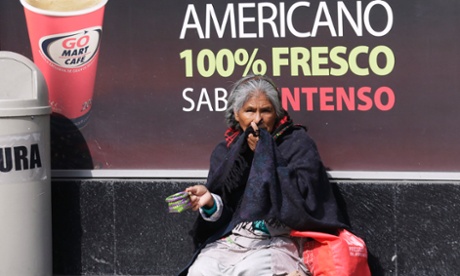
Next year, governments will agree a new global development framework of breathtaking ambition. We already know the likely shape of the sustainable development goals (SDGS) , which will include targets ranging from ending poverty to reducing inequality both within and between countries; from better governance and peaceful societies to action on climate change, ecosystem restoration, and a big shift towards sustainable consumption and production.
But the real test of governments’ commitment isn’t the loftiness of the goals. It’s what they’re prepared to do to reach them. The SDGs are far more ambitious than the millennium development goals (MDGs), which they will replace, and delivering them will be harder. Unfortunately, there seems little prospect of a deal on delivery that is as ambitious as the goals themselves.
Imagine a political deal that is ambitious on the one hand, but still feasible – as a working paper by the UN Foundation and the Center on International Cooperation does – and you have a package of measures that falls a long way short of “getting to zero” on poverty in 15 years, much less moving towards more sustainable and inclusive globalisation.
What would it look like if the world was serious about a major transformation of the global economy to achieve these goals by 2030? Here are eight ideas.
• Wealthier countries would get much more serious about assessing their domestic policies for potential risks to fragile states. They’ would look at arms sales, financial regulation and money-laundering, anti-bribery and anti-corruption legislation, tax havens, extractive industries and drug prohibition. They would subject their policies to rigorous risk assessment – and ensure these assessments triggered ministerial and/or parliamentary discussions where necessary. And they would make the whole process transparent.
• They would subject their economic policies to a similar assessment – especially in high-impact areas like tax, subsidies, trade and migration. Assessing the international impact on food prices of domestic biofuel mandates, for example, would be conducted as a matter of course. Once again, there would be provision for public disclosure and ministerial and parliamentary discussions.
• Global climate policy would be driven by an independent body with powers to advise on the right level for a carbon budget and monitor countries’ performance against their shares of it – just as the independent committee on climate change does in the UK under the 2008 Climate Act. Politicians, with their short-term re-election imperatives, will always have a conflict of interest when it comes to taking hard, long-term decisions about emissions reductions. Just as many governments have relinquished the power to set interest rates, so they need to do likewise on carbon budgets.
• This global carbon budget would be shared between countries on an equal, per capita basis. If anything on Earth is the common property of all humanity, it’s the sky. The need for fair sharing of a safe emissions budget is unavoidable. This would set the stage for emissions trading to become a massive new source of development finance, potentially much bigger than aid, and especially for the world’s lowest emitters: the least developed countries.
• Dividends from using natural resources like land, water and the atmosphere, which belong to all of us, should accrue to society at large. Oil and mineral wealth, for example, would be recognised as the property of all a country’s citizens – and regarded as stolen assets when the proceeds from selling such resources were manifestly benefiting vested interests rather than the people.
• Governments would make a presumption against intellectual property in areas of high development or sustainability impact. We need a much more open system for socially and environmentally valuable technologies, including greater use of royalties, prize funds or advance purchase commitments – and much more public funding for research and development.
• We need a financial system built for the long term. With global equities worth $50tn (£32tn) and sovereign and intergovernmental debt of $100tn, there’s no shortage of capital looking for yield. But in recent years, capital has too often flowed to where it’s part of the problem (subprime property, commodity speculation, new fossil fuel sources that can never be burned in a 2C scenario). We need to change the rules of the game – such as fiduciary responsibilities for institutional investors – as well as smart ways of blending public and private finance.
• Liberalise migration. The economist Branko Milanović suggests that as much as half of variability in incomes is accounted for by where people are born and the citizenship they have. Unless poor countries grow much faster than rich ones, or rich countries suddenly develop an appetite for global redistribution, the only way to a more equal world is if poor people can work in rich countries – which is also in developed countries’ interests as they confront the demographic challenges of ageing populations.

